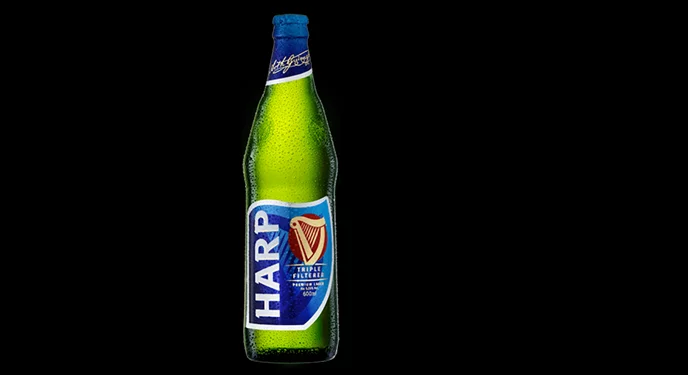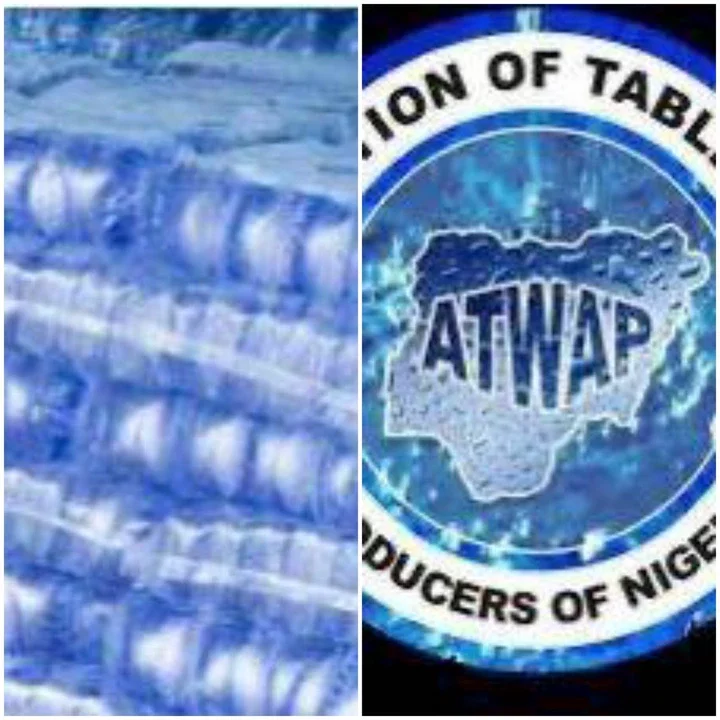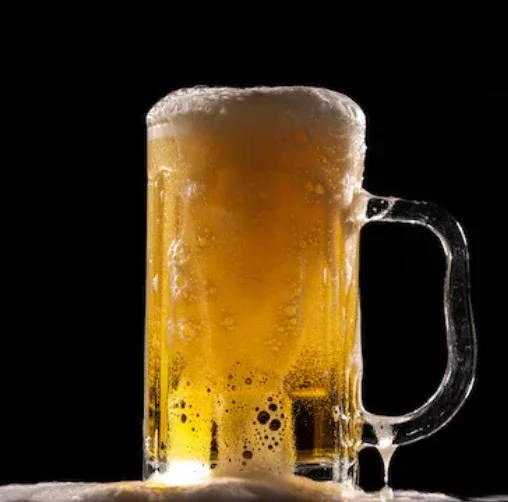
Production of one of Nigeria's leading beer brands, Harp Lager beer, has been stopped for over four years, leaving some ardent customers yearning for its return.
Introduced in 1974 and once a dominant force alongside Star Lager, Harp Lager was a symbol of competition between two of Nigeria's largest beer makers, Guinness Plc and Nigeria Breweries.
However, changing market dynamics, increasing competition, and rising costs have led to the discontinuation of the beloved beer brand. By 2019, sales of Harp had fallen by double digits escalating the urgent decision to halt production.
The company also shifted focus to its ready-to-drink products such as Smirnoff Ice, Baileys, and Orijin which are producing better results.
Nigeria's beer market remains one of the fastest-growing in the world, but it faces fierce competition and shifting consumer preferences. These factors have contributed to the demise of several beer brands, including the discontinuation of Harp Lager Beer production by Guinness Nigeria.
A reliable source within the organization, speaking on the condition of anonymity, explained that Harp "died a natural death and has been buried for over four years ago because it was not moving market," losing ground to competing brands.
The headquarters of Guinness Nigeria has also since relocated to the Ogba Brewery, which was previously known as the Harp Brewery, leaving behind the Harp production line.
He explained that during the last factory tour last year at the Harp factory at Ogba, Lagos it was confirmed that there was no longer a Harp production line, rather what was seen as a replacement was the Origin Bitters production line in the factory.
The source added that the company acquired about 25 hectares of land around the Ogba factory for production extension, but it remained to be seen if the acquisition is to bring back production of Harp Lager Beer.
Distributors of Guinness brands expressed their views on the situation. Sam Egemeole, the owner of Saneg Nigeria Limited, confirmed that Guinness ceased production of Harp and another beer brand over four years ago, emphasizing the company's shift towards innovative products like Origin, Smirnoff Ice, Spirits, and Guinness Stout.
"They have not been producing Harp for a long time now, they do not brew beer again, I think it should be their business decision. They are now into innovative products like Origin, Smirnoff Ice, Spirits, Guinness Stout, and others. It is more than four years since they stopped production," he said.
Akin Adeoye, a bar attendant in Lagos, pointed out that the drop in patronage of Harp Lager and other premium beer brands was due to the dwindling purchasing power of consumers, leading them to opt for more affordable brands like cheap bitters.
Meanwhile, John Chukwuma, a Guinness sub-distributor, expressed disappointment over the decision, highlighting Harp's loyal following and the challenge of finding a suitable replacement.
"This was a huge blow, Harp is one of our most popular brands, and it's going to be very difficult to replace. Harp is a well-established brand with a loyal following, and it's going to be hard to find something that can match it," he said.
Jane Ofili, a beer parlour owner in Lagos, echoed concerns about dealing with unused Harp Lager crates and called on the company to provide assistance.
"We are appealing to the company to come and help us by either buying the empty crates or replacing them with existing brands like Stout crates. The discontinuation of Harp Lager Beer was a major setback for many beer parlour owners in Nigeria. It will be interesting to see how they respond to this challenge, and whether they can find a way to weather this storm," she said.
The news of Harp Lager Beer's discontinuation met with mixed reactions from consumers. Some consumers interviewed by Nairametrics expressed disappointment, while others said that they are not surprised by the decision.
"I'm a big fan of Harp," said John Okeke, a consumer. "I'm disappointed that it's being discontinued. But I understand that businesses have to make tough decisions sometimes."
Another consumer, Dele Johnson, said that he was not surprised by the decision.
"Harp has been struggling for a while to remain afloat over other emerging competitive brands, I think even Star Lager beer though still can be found is having a herculean task to navigate the murky water of competition," he said. "I'm not surprised that Guinness has decided to pull the plug."
Mr. Rotimi Odusola, Corporate Relations Director of Guinness Nigeria Plc, responding to Nairametrics' inquiry via WhatsApp message confirmed the discontinuation of the production of Harp Lager but noted that the decision was based on business strategy.
"Guinness Nigeria has a strategy to optimize value to our stakeholders including our esteemed consumers and this informs our decision to focus on product categories that support this ambition. Our decision regarding brands in the larger category is in line with our overarching strategy.
The significant investment we made in the acquisition of the landed property adjacent to our Ogba Brewery affords us the opportunity for future expansion and greater operational efficiency. We remain committed to investing in Nigeria and securing our business for the long term.
We are constantly innovating to create exciting brands for the enjoyment of our consumers and expanding our rich portfolio while encouraging responsible consumption of our products.
We will continue to invest in the Nigerian economy and contribute to the delivery of socio-economic benefits to our consumers, shareholders, and stakeholders," he said.
Nairametrics research further gathered that in recent years, Nigerian beer brands have increasingly adopted regional marketing strategies to appeal to the diverse tastes and preferences of consumers across the country. This is a departure from the traditional approach of marketing beer brands on a national scale.
One of the most successful regional marketing strategies has been employed by SABMiller, which has introduced quality and affordable beers into the Nigerian market. These beers, such as Trophy and Hero Lager, are specifically tailored to appeal to consumers in different regions of the country.
For example, Trophy is marketed as a "Yoruba beer" in the southwest of Nigeria, while Hero Lager is marketed as an "Igbo beer" in the southeast.
Nigerian Breweries Plc has also adopted a regional marketing strategy for its portfolio of beer brands. The company's "regional champions" include Goldberg for the Southwest Region and Life Lager Beer for the Southeast region. These brands are marketed differently from the company's mainstream premium brands, such as Star, Gulder, and Heineken.
The regional marketing strategies employed by SABMiller and Nigerian Breweries Plc have been very successful. These brands have quickly become the preferred choice of consumers in their respective regions. As a result, Guinness, which has traditionally marketed its Harp beer on a national scale struggled to compete.
Despite discontinuing Harp, Guinness continues to retain the brand on its website as one of its key beer products. Guinness has since focussed on its Guinness, Mainstream Spirits (bitters), Premium Spirits, Malts, and RTD segments.
Its flagship Guinness Stout segment grew 19% in the first 6 months ending December 2022. Mainstream spirits rose 41% while the RTD gained 9%. However, premium spirits and malts reported revenue drops of 10% and 9% respectively.
















Comments